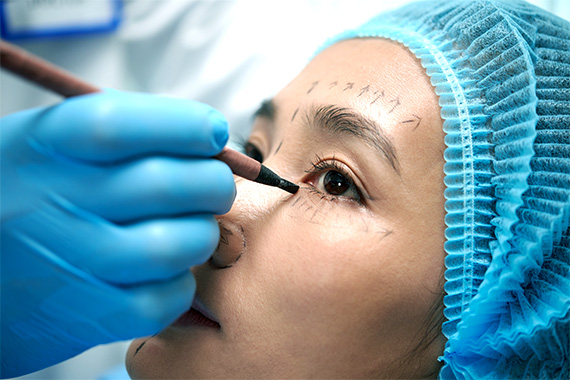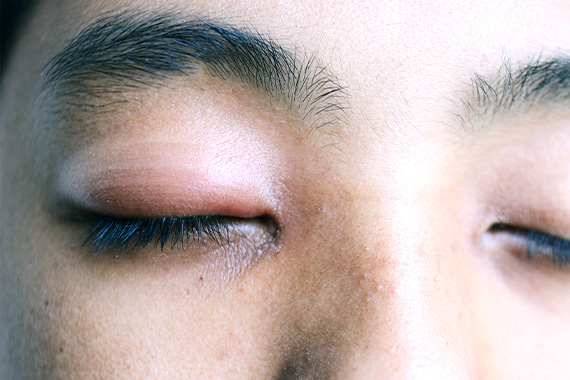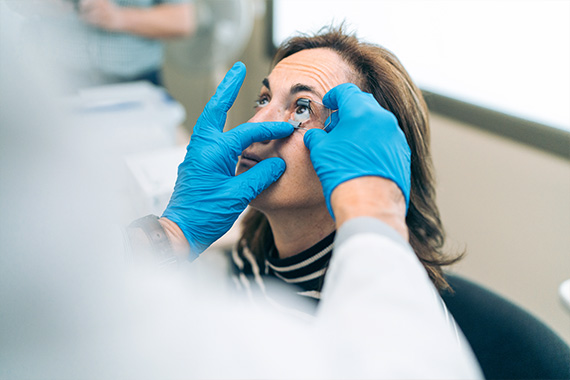Oculoplasty, also known as ophthalmic plastic surgery, is a specialized field of surgery that focuses on the structures surrounding the eyes, including the eyelids, tear ducts, orbit (eye socket), and the facial area around the eyes. This type of surgery can be both functional and cosmetic, addressing issues that may impair vision or affect the appearance of the eyes and surrounding areas. Oculoplasty is often performed to correct congenital deformities, treat conditions like ptosis (drooping eyelids), repair injuries, remove tumors, or address the effects of aging, such as baggy eyelids or wrinkles.


Oculoplasty itself is not a condition but a treatment. However, individuals who may require oculoplasty often present with specific symptoms that indicate a need for surgical intervention. These symptoms may include:
It is crucial to consult a doctor if you experience any of the following symptoms:
Early consultation with an eye specialist can lead to timely intervention, preventing further complications and improving both functional and cosmetic outcomes.
The need for oculoplasty can arise from various causes, including:
Some individuals are born with eyelid deformities, tear duct blockages, or other abnormalities that require surgical correction.
As we age, the skin and muscles around the eyes can lose elasticity and strength, leading to drooping eyelids, wrinkles, and puffiness.
Trauma to the eye area can result in damage that necessitates reconstructive surgery.
Both benign and malignant tumors around the eyes may require removal through oculoplasty.
Certain medical conditions, such as thyroid eye disease, can lead to changes in the appearance and function of the eyelids and surrounding structures, often necessitating surgical intervention.
Several factors can increase the likelihood of needing oculoplasty:
The natural aging process can lead to conditions like drooping eyelids, which may require surgical correction.
A family history of eyelid deformities or conditions may predispose you to similar issues.
Conditions like thyroid eye disease, chronic eye infections, or tumors increase the risk of needing oculoplasty.
Chronic exposure to sunlight, pollution, or other environmental irritants can accelerate the aging process or cause conditions that necessitate surgery.
Accidents or injuries that affect the eye area can lead to conditions that require oculoplastic surgery.
While not all causes leading to oculoplasty can be prevented, there are steps you can take to reduce your risk:

Wear sunglasses that block UV rays, and use protective eyewear during activities that could lead to eye injuries.

Regularly clean your eyelids and the area around your eyes, and avoid rubbing your eyes excessively.

Routine eye exams can help detect problems early, allowing for timely treatment that may prevent the need for surgery.

A balanced diet, regular exercise, and avoiding smoking can improve overall eye health and delay the aging process around the eyes.

Properly managing conditions like thyroid disease or diabetes can reduce the likelihood of developing complications that require oculoplasty.
Oculoplasty plays a crucial role in both restoring and enhancing the function and appearance of the eyes and surrounding structures. Whether addressing congenital issues, the effects of aging, or the aftermath of an injury, oculoplastic surgery offers tailored solutions that improve quality of life. Early detection and treatment are vital in achieving the best outcomes, so if you experience symptoms or have concerns about the area around your eyes, consult an eye specialist promptly.
While Shree Ramkrishna Netralaya is your top choice for eye care in Mumbai, you may also consider our other reputable clinics and hospitals near you.
Address:
201 & 202 Elmer #Plot #563, Central Avenue, Corner of, 11th Rd, Chembur, 400071
Phone: 082917 14838
Timing: Mon-Sat- 10 a.m. To 8 p.m.
Address:
Near Risk Care Hospital, Near Makhamali Talao, LBS Marg, Thane, W, Mumbai, Maharashtra 400601
Phone: 02225441139
Timing: Mon-Sat- 11 a.m. To 8 p.m.